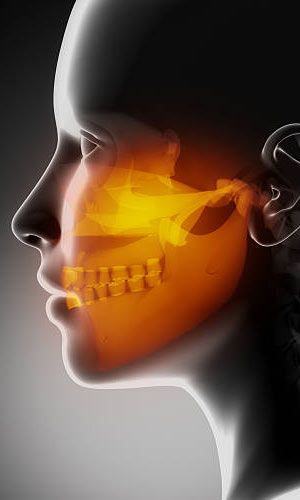What is Maxillofacial Surgery?
Maxillofacial surgery, a specialized branch of dentistry, focuses on diagnosing and treating a wide range of diseases, injuries, and defects affecting the head, neck, face, jaws, and the hard and soft tissues of the oral and maxillofacial region. This field of surgery, often referred to as oral and maxillofacial surgery (OMS), combines dental, medical, and surgical expertise to address complex issues that affect both appearance and function.
What Is the Scope of Maxillofacial Surgery?
Maxillofacial surgery encompasses a variety of procedures aimed at addressing both functional and aesthetic concerns. These procedures can range from routine extractions and implant placements to more complex operations such as reconstructive surgery following trauma or oncological resections. Here are some of the key areas covered by maxillofacial surgery:
- Dental Implant Surgery: Placement of dental implants to replace missing teeth.
- Dentoalveolar Surgery: Removal of impacted teeth, complex extractions, and other minor surgical procedures involving the teeth and surrounding structures.
- Corrective Jaw Surgery (Orthognathic Surgery): Correction of skeletal and dental abnormalities to improve function and appearance.
- Cleft Lip and Palate Surgery: Repair of congenital deformities in the lip and palate.
- Facial Trauma Surgery: Treatment of fractures and soft tissue injuries to the face and jaw
- Head and Neck Cancer Surgery: Removal of tumors and reconstruction of affected areas
- TMJ (Temporomandibular Joint) Surgery: Treatment of disorders affecting the jaw joint and associated structures.
- Reconstructive Surgery: Restoration of form and function following trauma or disease
- Cosmetic Surgery: Procedures to enhance facial aesthetics, such as rhinoplasty, facelifts, and brow lifts.
What Training and Expertise Does a Maxillofacial Surgeon Require?
Maxillofacial surgeons undergo extensive training that includes dental school followed by a residency in oral and maxillofacial surgery. Many also complete additional degrees in medicine (MD) or advanced training in specific subspecialties. This rigorous training equips them with a deep understanding of both the aesthetic and functional aspects of the face and jaws.
What Are Common Procedures in Maxillofacial Surgery?
Dental Implants
Dental implants are a popular and effective solution for replacing missing teeth. The procedure involves placing a titanium post into the jawbone, which acts as a root for the artificial tooth. Over time, the bone integrates with the implant, providing a strong foundation for the replacement tooth.
Wisdom Teeth Extraction
The removal of impacted or problematic wisdom teeth is a common procedure performed by maxillofacial surgeons. Impacted wisdom teeth can cause pain, infection, and damage to adjacent teeth. Surgical extraction involves removing the teeth to prevent these complications.
Orthognathic Surgery
Orthognathic surgery, or corrective jaw surgery, is performed to correct misalignments of the jaws that cannot be addressed with orthodontics alone. Conditions treated with orthognathic surgery include underbites, overbites, crossbites, and open bites. The surgery improves both function (chewing, speaking) and aesthetics.
Cleft Lip and Palate Repair
Cleft lip and palate are congenital deformities that occur when the facial structures do not fuse properly during development. Maxillofacial surgeons perform surgery to repair these defects, typically in multiple stages, to restore normal function and appearance.
TMJ Surgery
TMJ disorders can cause significant pain and dysfunction in the jaw joint. Treatments range from non-surgical approaches like physical therapy and medications to surgical interventions such as arthroscopy or joint replacement.
Facial Trauma Surgery
Facial trauma, such as fractures of the jaw, cheekbones, or eye sockets, requires precise surgical intervention to restore normal function and appearance. Maxillofacial surgeons are skilled in treating both the bony and soft tissue injuries associated with facial trauma.
Head and Neck Cancer Surgery
Treatment of head and neck cancers often involves the surgical removal of tumors, followed by reconstructive procedures to restore the affected area. Maxillofacial surgeons work closely with oncologists and other specialists to provide comprehensive care.
Reconstructive Surgery
Reconstructive surgery is essential for patients who have suffered trauma, disease, or congenital defects. These procedures aim to restore both form and function, allowing patients to regain normal appearance and use of the affected areas.
Cosmetic Surgery
Cosmetic maxillofacial surgery includes procedures designed to enhance facial aesthetics. Common procedures include rhinoplasty (nose reshaping), blepharoplasty (eyelid surgery), and rhytidectomy (facelift). These surgeries not only improve appearance but can also boost self-esteem and confidence.

Dr. Uday Polisetty
Oral & Maxillofacial Surgeon

What Is the Significance of Maxillofacial Surgery?
Maxillofacial surgery plays a critical role in addressing a wide range of conditions that affect the face and jaws. The impact of these conditions can be profound, affecting not only physical health but also psychological well-being and quality of life. Here are some key reasons why maxillofacial surgery is important
Restoring Function
Conditions such as jaw misalignment, TMJ disorders, and facial trauma can significantly impair a person's ability to eat, speak, and breathe. Maxillofacial surgery can restore normal function, improving quality of life.
Improving Aesthetics
Facial appearance plays a crucial role in social interactions and self-esteem. Procedures like orthognathic surgery, cleft repair, and cosmetic surgery can enhance facial aesthetics, boosting confidence and social well-being.
Addressing Congenital Defects
Congenital conditions like cleft lip and palate can cause serious functional and social challenges. Early surgical intervention can correct these defects, allowing children to develop normally and participate fully in society.
Treating Trauma
Facial injuries can be devastating, leading to disfigurement and loss of function. Maxillofacial surgeons are skilled in reconstructive techniques that restore both appearance and function following trauma.
Managing Cancer
Head and neck cancers require complex surgical management to remove tumors and reconstruct affected areas. Maxillofacial surgeons work as part of a multidisciplinary team to provide comprehensive cancer care.
Enhancing Oral Health
Procedures like dental implants and wisdom teeth extractions are crucial for maintaining oral health. Dental implants provide a durable solution for missing teeth, while wisdom teeth extractions prevent complications from impacted teeth.
What are the Innovations and Advances in Maxillofacial Surgery?
The field of maxillofacial surgery continues to evolve with advancements in technology and surgical techniques. Some notable innovations includ
Minimally Invasive Surgery
Minimally invasive techniques, such as endoscopic surgery, allow for smaller incisions, reduced scarring, and faster recovery times. These techniques are increasingly used in procedures like TMJ surgery and sinus lifts for dental implants.
Computer-Aided Surgery
Advanced imaging and computer-aided design (CAD) technology enable precise planning and execution of surgical procedures. 3D imaging and printing are used to create accurate models of the patient's anatomy, allowing for customized surgical guides and implants.
Regenerative Medicine
Regenerative techniques, such as bone grafting and tissue engineering, are used to reconstruct and repair facial structures. These approaches promote natural healing and integration of implants, improving outcomes for patients undergoing reconstructive surgery.
Laser Surgery
Laser technology offers a precise and minimally invasive option for various maxillofacial procedures. Lasers are used for soft tissue surgeries, such as removing benign tumors or treating oral lesions, with reduced bleeding and faster healing.
Virtual Surgical Planning
Virtual surgical planning (VSP) involves using digital models and simulations to plan complex surgeries. VSP enhances precision and allows surgeons to anticipate potential challenges, improving the accuracy and success of procedures like orthognathic surgery.
How to Choose the Right Maxillofacial Surgeon?
When considering maxillofacial surgery, it's important to choose a qualified and experienced surgeon. Here are some tips for selecting the right specialist
- Check Credentials: Ensure the surgeon is board-certified in oral and maxillofacial surgery and has the necessary medical or dental qualifications.
- Experience: Look for a surgeon with extensive experience in the specific procedure you need. Ask about their success rates and any potential complications.
- Referrals and Reviews: Seek referrals from your dentist, physician, or other healthcare providers. Read patient reviews and testimonials to gauge the surgeon's reputation and patient satisfaction.
- Consultation: Schedule a consultation to discuss your concerns and treatment options. A good surgeon will take the time to explain the procedure, answer your questions, and provide a clear treatment plan.
- Facilities: Ensure the surgery will be performed in a reputable and accredited facility equipped with advanced technology and emergency support.
Maxillofacial surgery is a vital specialty that addresses a wide range of functional and aesthetic concerns affecting the face and jaws. From dental implants and wisdom teeth extractions to complex reconstructive surgeries, maxillofacial surgeons possess the expertise and skills to improve patients' quality of life. Advances in technology and surgical techniques continue to enhance the precision and outcomes of these procedures, offering new hope and possibilities for patients. When choosing a maxillofacial surgeon, it's important to consider their credentials, experience, and patient satisfaction to ensure the best possible care.
